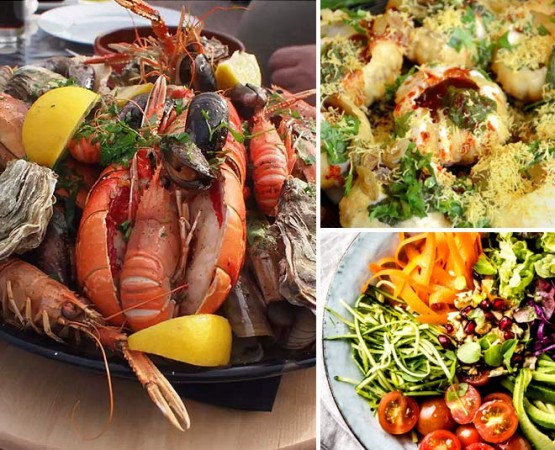
The rainy season brings relief from the scorching summer heat, but it also brings with it a set of health challenges. During this time, it's essential to pay attention to your diet to stay healthy and avoid falling ill. Some foods can be equivalent to poison during the rainy season due to the increased risk of contamination and digestive issues. Let's explore the foods you should steer clear of to ensure a safe and healthy monsoon season.
Rainy seasons and street food often go hand in hand. While the aroma of pakoras and chaat is tempting, it's crucial to exercise caution when indulging in street food. Contaminated water and unhygienic cooking conditions can lead to foodborne illnesses.
Pani puri, a beloved street food, should be consumed with caution during the rainy season. The water used to make the spicy tamarind water can be a breeding ground for bacteria, causing stomach infections.
Similar to pani puri, bhel puri is susceptible to contamination. The combination of wet chutneys and monsoon humidity can quickly lead to spoilage.
Leafy greens are a staple in many diets, but they can be problematic during the rainy season.
Spinach, when not cleaned properly, can carry dirt and parasites. Make sure to wash and cook it thoroughly to avoid health issues.
Seafood lovers need to be cautious during the monsoon season.
Raw seafood, such as sushi, can be risky during the rainy season as the warm and humid conditions promote the growth of harmful bacteria.
While fresh fruits are usually a healthy choice, buying cut fruits from street vendors during the rainy season can be risky.
Cut fruits exposed to the open air can quickly become contaminated with rainwater and airborne pollutants.
Dairy products are susceptible to spoilage during the rainy season.
Milk can spoil quickly in the humid weather, leading to digestive issues if consumed.
Paneer, a popular dairy product, should also be stored and handled with care during the monsoon.
Fried and oily foods are enticing, especially when it's pouring outside, but they can wreak havoc on your digestion.
Samosas, pakoras, and other deep-fried snacks can be heavy on the stomach and lead to indigestion.
Cooking with excessive oil can lead to heartburn and discomfort.
When dining out during the rainy season, consider the restaurant's hygiene standards.
Ensure that the restaurant maintains proper hygiene, from the kitchen to the dining area.
Opting for home-cooked meals can be a safer choice during the rainy season.
Cooking at home allows you to use fresh and properly washed ingredients, reducing the risk of foodborne illnesses. In conclusion, while the rainy season is a delightful time of year, it's crucial to be mindful of your food choices. Avoiding certain foods and practicing good hygiene can go a long way in ensuring a healthy and enjoyable monsoon season.
20 affordable vegan protein sources
7 renowned street foods in Kolkata, from fuchka to ghugni to chow mein
Study Reveals Broccoli Is More Beneficial Than Spinach, a Green Vegetable